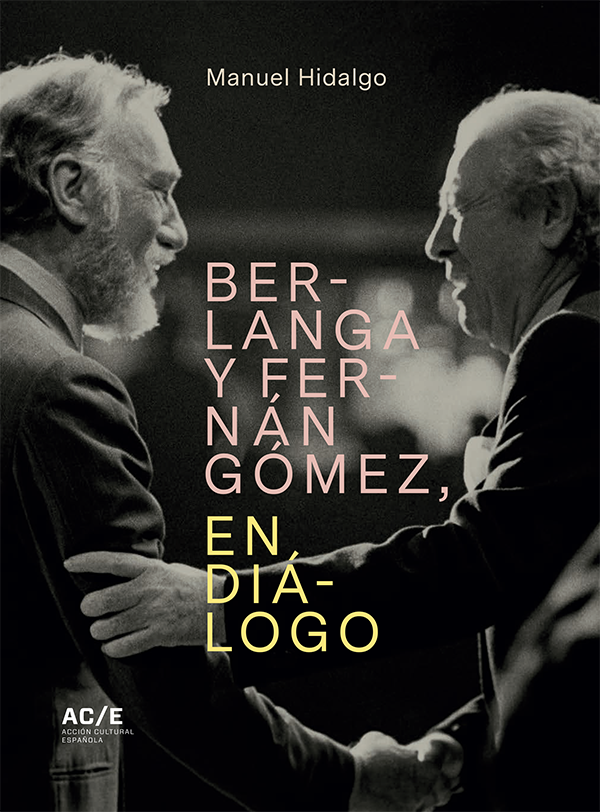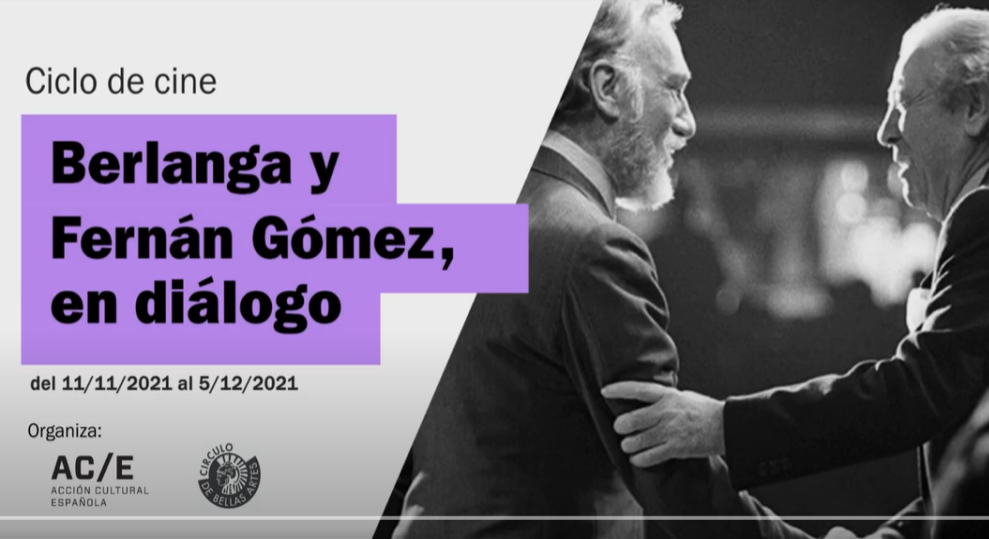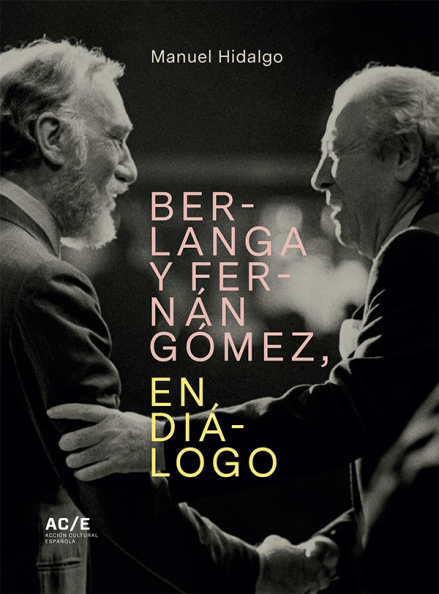In 2021 we celebrate the centenary of the birth of Luis García Berlanga (Valencia, June 12, 1921 - Madrid, November 13, 2010) and Fernando Fernán Gómez (Lima, Peru, August 28, 1921-Madrid, Spain, 21 November 2007), with three specific actions: a round table, a film series and a publication. Through these actions, the numerous points of contact between the filmographies of both creators and in the field of writing are analyzed, as well as those options in which their works and life trajectories, in the context of the same generation and the same political-social space, were divergent.
⇥ The round table, moderated by Manuel Hidalgo, takes place at the Cinema of the Círculo de Bellas Artes on November 4, with the participation of:
-Manuel Gutiérrez Aragon
-Fernando Méndez Leite
-Marta Fernández Muro
| Admission to the round table and the film series is free until full capacity is reached. Tickets can be collected from 1 hour before at the box office of the Círculo de Bellas Artes. |
⇥ The projection in the Estudio cinema room at the Círculo de Bellas Artes presents a series of films in which both participated, among these are:
- "That happy couple" (1951) / First film by Luis García Berlanga as director -together with Juan Antonio Bardem-, with Fernando Fernán Gómez as the leading actor. Neorealist-influenced comedy about everyday life and the aspirations of a married couple.
- "Life ahead" (1958) / Fourth film by Fernando Fernán Gómez as director and first unanimously recognized by critics. Likewise, a comedy with a neorealist influence on the daily life and aspirations of a couple.
- "The strange journey" (1964) / Although cursed, it is perhaps Fernando Fernán Gómez's most prestigious film. Based on an idea by Luis García Berlanga, with a script by Pedro Beltrán - a regular collaborator of both filmmakers - it is a black and grotesque vision of the family, a common point of view in his filmographies.
- “Moros y Cristianos” (1987) / Antepenultimate film directed by Luis García Berlanga, in which for the second and last time FFG is its main interpreter. Popular, satirical and sainetesca comedy oriented towards the box office, an occasional target of Luis García Berlanga, in which Fernando Fernán Gómez coincided several times.
- "The anchorite" (1976) / Dramatic comedy that offers a curious and very suggestive confluence of the world of both filmmakers - misogyny, loneliness, pessimism, eroticism, couple, family, death, grotesque distortion ... - by a third party director . Juan Estelrich directs, Alfredo Matas produces, Pedro Beltrán acts, Rafael Azcona writes the script, all of them collaborators of the two filmmakers' films. Fernando Fernán Gómez, who stars in the film, was the author of the Prologue of the book edition of the script, which was followed by notes written by Luis García Berlanga.
⇥ Finally, the publication hinges on the milestones of the creative and vital dialogue of Luis García Berlanga and Fernando Fernán Gómez, in the abundant areas of convergence and divergence of both filmmakers and their films, in the context of the political, cultural and film situation in the Spain of his time.







